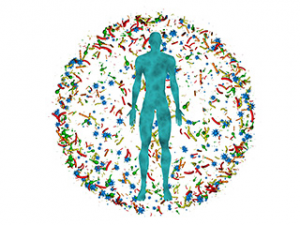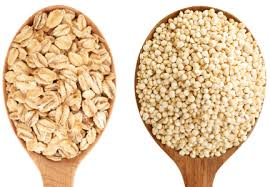What is the Microbiome?
The human microbiome consists of all the microorganisms that colonize the surfaces of our body. Though they’re found all over our bodies, the vast majority of these bacteria are found in our digestive system. In healthy individuals, these microorganisms peacefully coexist with us and even help with many important body functions including digestion and immune support. In fact, the microbiome has such an important role that it’s often referred to as a ‘support organ’.

We are colonized by bacteria throughout our lives, starting the moment we’re born. The majority of the colonization process occurs during the first few years of life through breast feeding and exposure to our mother’s microbiome. Later in life, the composition of our microbiomes is influenced by many factors including diet, stress, medications, and environmental exposures.
Because a healthy microbiome is key to proper body function, taking care of our microbiome is incredibly important. One way to take care of our microbiomes is to ‘feed it’ by consuming prebiotics.
A prebiotic is a plant fiber that humans cannot digest. As they sit in your gut, they stimulate the growth of healthy bacteria and act as food for probiotics and microbes so they can work properly. They have been shown to increase digestive and gastrointestinal health.
Consuming prebiotics is an easy way to keep your gut bacteria healthy. Luckily, foods that contain prebiotics are all around us. Foods high in fiber like fruits, vegetables, and whole grains are all great sources. These are good to consume at any meal throughout the day. Here are some easy ways to incorporate prebiotics into your diet:
- Choose whole grains like oatmeal or quinoa instead of refined grains like white bread.
- Eat whole fruits and vegetables instead of drinking juice.
- Add nuts to your meals- they’re great in salads, yogurt, or just as a snack
